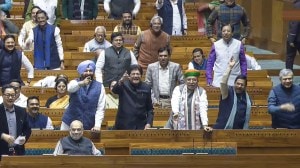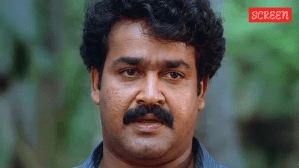NIA to question Headley again in next 10 days
Officials of NIA will get to question Headley a few more times in the next 10 days.
Dispelling notions that Pakistani-American terror suspect David Coleman Headley,who has pleaded guilty to his involvement in the 26/11 Mumbai terror attacks,was not cooperating with the Indian investigators,who have been granted access to him,the government sources on Sunday said that officials of the National Investigation Agency (NIA) will get to question Headley a few more times in the next 10 days.
Reports that Headley is not cooperating are incorrect and must be taken with a pinch of salt, a senior government functionary told The Indian Express. The NIA officials will again get access to him over the next 10 days, the source said,adding that the NIA team was likely to return to India sometime in the middle of this month.
The NIA team,which also has a judicial officer as a member,is learnt to be recording Headleys testimony under the Criminal Procedure Code. Indian authorities have already made it clear that both India and the US will come out with a joint statement on the matter once the NIA team was through with its questioning.
As per the plea bargain entered between Headley and the US government,India could have accessed Headley through deposition,video conferencing or through Letters Rogatory. After weeks of assurances by the US government,the NIA sleuths have finally got access to the 49-year-old terror suspect,currently lodged in a Chicago prison.
The NIA had booked Headley and Canadian citizen Tahawwur Hussain Rana,alongwith unnamed others,on November 11,2009 on charges of entering into a criminal conspiracy with members of Lashkar-e-Toiba and HuJI to commit terrorist acts in New Delhi and other places in India. The duo had been booked under Sections 121A and 120-B of the IPC,the Unlawful Activities Prevention Act and the SAARC Convention (Suppression of Terrorism) Act,1993.
While the plea bargain between Headley and the US government,which is currently pending before a US court,rules out Headleys extradition to India,the Ministry of Home Affairs is examining the plea agreement in the light of the provisions of the Extradition Treaty and the Mutual Legal Assistance Treaty between India and the US.
- 01
- 02
- 03
- 04
- 05































